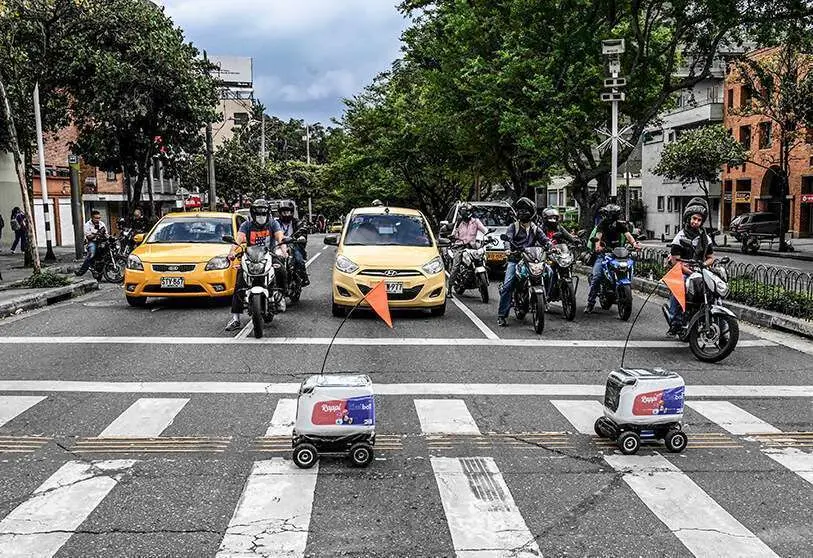Covid-19 and digitalisation: can Latin America catch up with other emerging regions?

The global spread of the novel coronavirus has created many existential changes to how economies function. In particular, strict social distancing measures have forced governments and businesses to adopt more astute digital practices to ensure the ongoing delivery of essential goods and services. Before the pandemic, Latin America and the Caribbean (LAC) was not considered to be a region at the forefront of digitalisation. However, there are signs that the onset of Covid-19 will accelerate the rate of digitalisation across the region.
In its “Global Competitiveness Report 2019”, the World Economic Forum (WEF) ranked LAC far behind some other emerging regions in its ICT adoption metric. The region scored 50.9 out of 100, above sub-Saharan Africa (34.3) and South Asia (35.1), but behind Middle East and North Africa (57.6) and East Asia and the Pacific (70.3). Within the region, the major economies varied slightly but remained within a narrow range: Argentina scored 58 out of 100; Colombia, 49.9; Mexico, 55; and Peru, 45.7.

With the second-largest economy and population in Latin America, as well as being the largest trade partner of the US, Mexico’s digitalisation agenda is central to its future economic growth, particularly given its strong manufacturing base. However, the speed at which digital transformation takes place will depend on the size and financial capacity of different companies.
“Although Covid-19 may accelerate the digitalisation of certain parts of the Mexican economy, this will predominantly be led by larger firms. Around 90% of SMEs [small and medium-sized enterprises] are not yet prepared to fully digitalise, given the substantial capital investments required to do so,” Mauricio Prieto, CEO of local technology services provider Lennken, told OBG. “The transformation across the industrial sector is likely to be more comprehensive; however, it will largely depend on closer value chain integration with companies in the US, which are often at the forefront of digitalisation in their respective industries.”

Meanwhile, the health care industry has been swift to adopt new technologies for the delivery of essential services. Mexican IT firm Seguritech has developed a new mobile application that allows staff at the country's emergency services call centre to conduct video calls with people displaying coronavirus symptoms and then connect them with trained medical professionals. The app provides the societal and economic benefits of processing patients at a faster rate while easing pressure on health care workers and reducing the possibility of infection through in-person doctor visits.
Such benefits are also expected to be seen elsewhere, as service industries move towards online platforms. “In Mexico and across the whole region, the prevailing trend in the provision of key services such as insurance will be one of self-service,” Felipe Sánchez, president of Assurant México, told OBG. “The necessity to adapt to this new reality will cause an irreversible shift in consumer mentality, resulting in a substantial acceleration in the online consumption and purchasing of essential services.”

In Peru, a country with some of the strictest lockdown measures in the region, technology is being used to ensure the uninterrupted flow of goods through the country’s airports, ports and land borders without unnecessarily exposing key workers to the virus. This digital shift is backed by Legislative Decree 1492, which aims to “adopt provisions to promote the digitisation of processes by public and private entities which form part of this logistics chain”.
Alongside reducing contact and boosting efficiency, a likely benefit of the new measures will be an increase in transparency – particularly regarding the costs of transporting goods, which have increased as a result of the pandemic. The move, announced on May 10, will involve coordination from all public entities active in the logistics chains, as well as all private sector actors involved in the import and export of goods.

Colombia’s private sector-led innovation drive was already well under way before the Covid-19 pandemic, with a particular focus on creative industries and Industry 4.0. As such, in January last year the WEF named Colombia’s second city, Medellín, an affiliate centre of the organisation’s Fourth Industrial Revolution Network – the first Spanish-speaking city to be part of the global network. Under the programme, the centres are developed as global clusters for innovation, combining public, private and academic collaboration to advance emerging technologies.
As a sign of innovation in the city, a few weeks into the country’s lockdown 15 robots belonging to home delivery service Rappi began a pilot project in Medellín’s El Poblado neighbourhood, completing around 120 orders per day by late April. The project has been developed by Colombian firm Rappi and Kiwibot, a Colombian-owned, US-based tech firm. The robots, capable of carrying up to 8 kg in goods, use GPS to navigate the streets of Medellin, completely eliminating the need for human delivery of takeaway food from restaurants, thereby reducing the risk of Covid-19 transmission from person to person.










